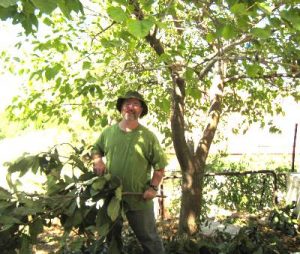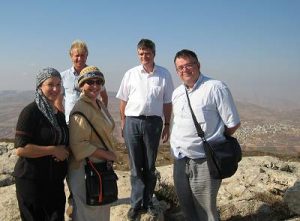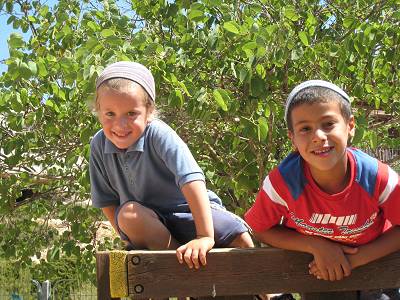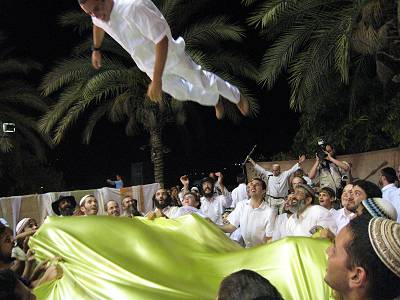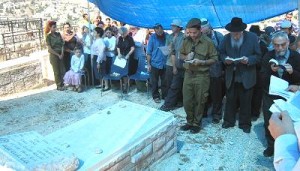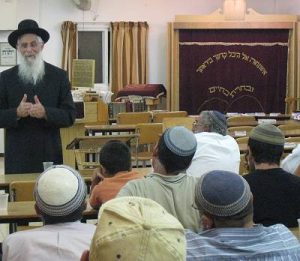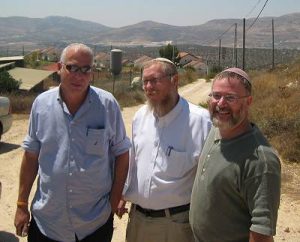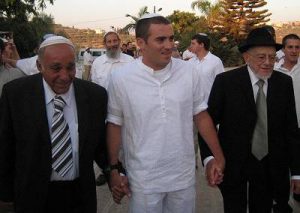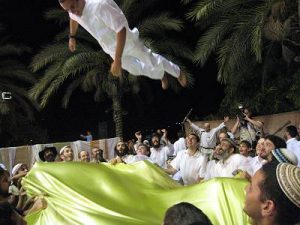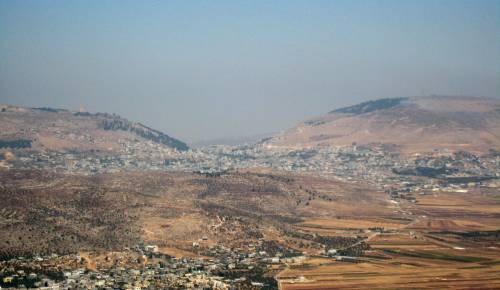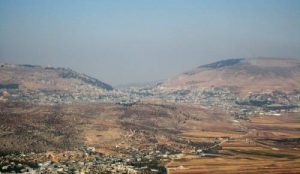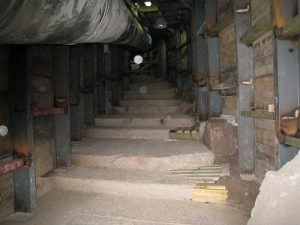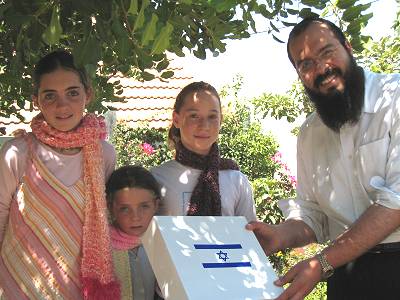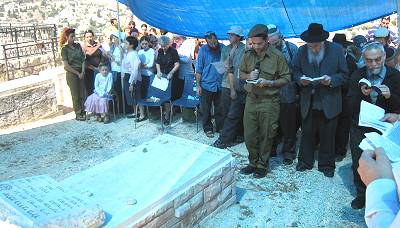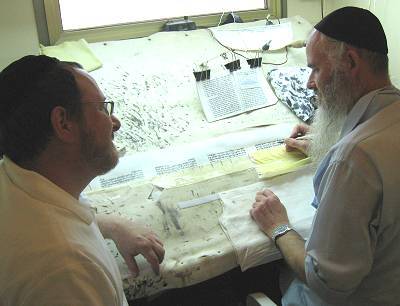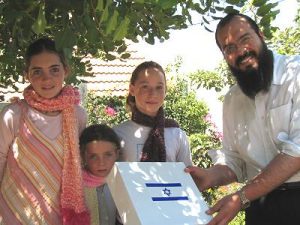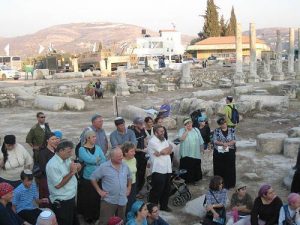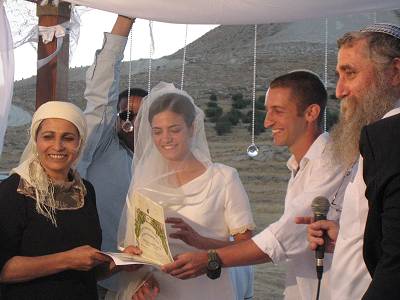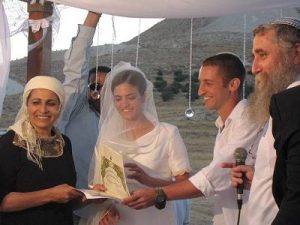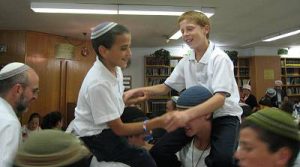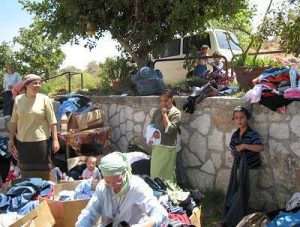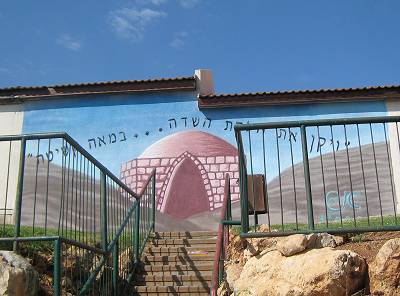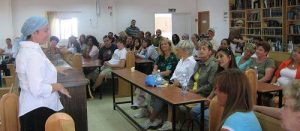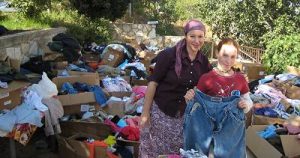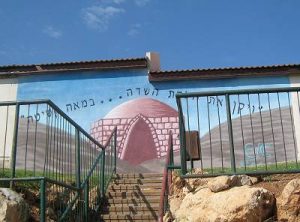Parashat VaatchananThursday, July 26, 2007
This week’s parasha opens with Moshe Rabeynu’s plea to Hashem to allow him to enter the Promised Land. Our rabbis teach us that Moshe Rabeynu prayed 515 times in order to nullify Hashem’s decree banning his entry to Eretz Yisrael. Now, Moshe wasn’t the type to ask for personal requests. We have already seen that he is exceptionally selfless. He kills the Egyptian without thinking of the consequences to his own safely; he helps the daughters of Yitro who were chased away by the shepherds, again placing himself in possible jeopardy. And there are countless times that he prays for the welfare of Am Yisrael, and intervenes on their behalf–even to the point of demanding that G-d erase his name from the Torah, if He can’t forgive them for the sin of the golden calf. So Moshe’s insistent praying for something of a personal nature, albeit entry into the Promised Land seems out of character.
I can think of one other time when Moshe seems to put in a personal request, and this occurs in Exodus 33, verse 18, when Moshe asks G-d to “show him His glory.” This is after Moshe has descended from Har Sinai with the stone tablets, discovered the nation’s sin of the golden calf, and begun working energetically to patch things up again. After a five-stage-appeasement process, G-d finally agrees to restore His presence among the Jewish nation. Moshe Rabeynu understands this to mean that He has returned to the original relationship He had with the nation before the sin of the golden calf, and headily pops the biggest question of all to Hashem; “Please, show me Your glory.”
Simply, this request can be understood as Moshe’s desire for the closest possible intimacy with Hashem. In kabalistic teaching, Moshe’s request is explained as an attempt to connect to the spiritual world of Atzilut. It is brought down in kabalistic literature that if the first set of tablets had not been broken, the Jewish nation would have returned to the spiritual level of Adam before he sinned. This would have allowed Am Yisrael access to the world of Atzilut. Moshe Rabeynu assumed that since Hashem had accepted his plea for Am Yisrael, it might now be possible to reach the level of Atzilut. From where Moshe was coming, his quest seemed attainable. Yet the degree of closeness that Moshe craved was denied. The sin of the golden calf required further rectification before such closeness could be achieved. Of course, Moshe had not participated in the sin of the golden calf, but the leader must share the fate of his people.
Why was Moshe Rabeynu seeking to achieve this high spiritual level? Was he, G-d forbid, looking to benefit personally? If so, how? It’s easy to understand why one might be drawn to worldly pursuits, to the race for money and power, to the numerous physical pleasures that money and power can make possible. We are all too familiar with selfish individuals whose total lack of scruples is the source of much of the crime and evil in this world.
We are less tuned in, however, to the fact that on the spiritual plane there is an even a greater battle: one can choose to spend his life running after spiritual pleasures, as well, and all for the wrong reasons. The various forms of idol worship and forbidden spiritual experiences are prohibited because they draw their energy from the dark side. They lead to an unholy spirituality, like the state of unholy ecstasy in which Moshe found the people when he descended from Mt. Sinai.
But even when one tries to draw his strength from the proper spiritual direction, there are tremendous challenges that must be dealt with. As a person grows spiritually, he has to cope each time with a new level of Divine energy and must be careful not to abuse it for his own personal benefit. Moshe Rabeynu’s forty days and nights on Mt. Sinai in the most elevated prophetic state possible was not meant for his personal benefit. As the leader of the Jewish nation Moshe Rabeynu was the vessel for receiving the Torah for all of Am Yisrael. It wasn’t a personal trip, a private high, but a special mission; he was chosen to be the emissary for all of Israel. His job was to pass on the Word of G-d to Am Yisrael. He had hoped thereby to restore the nation to that state of spiritual elevation that Adam had enjoyed before his eviction from Gan Eden.
Just as Israel might have attained the ultimate in spirituality by virtue of its leader, so, too, its leader is impacted by the spiritual level of his people. As we discussed, Moshe’s craving to “see Hashem’s glory” related to his wish to restore the people to their earlier spiritual heights. Similarly, Moshe’s intense desire to enter the land was again in pursuit of spiritual heights for Am Yisrael. The Medrash says that if Moshe Rabeynu had entered the land and built the Bet Hamikdash it would have been impossible to destroy it. His spiritual greatness coupled with the spirituality of the land would have resulted in a spiritual big bang. Whatever Moshe built would have been indestructible. Yet there was a problem. Clearly, the nation was not on a par with the spirituality of Moshe, or the land. When the people sinned, G-d’s wrath would have to be visited against the Jewish people rather than against His Temple. True, Moshe’s spiritual greatness would be enhanced; yet it would come at the price of his people. Once again, Moshe personifies the role of the leader, which is to do what’s best for his people, not what’s best for himself.
This lesson is hinted at when, right after Hashem delivers the painful verdict to Moshe that he can’t enter the land (only allowing him to see it from afar), the Torah mentions the location of the Jewish people: “And we sat in the valley across from Baal Pior.” The mention of locations in the Torah is common, but less common is the naming of a location infamous for idol worship as a point of reference. Perhaps the Torah means to say that Moshe Rabeynu, Israel’s great and selfless protector, who represents the spiritual antithesis of idol worship, is buried across from Baal Pior, where the people were seduced into sin, in order to counteract its detrimental effects.
Rabbi Moshe Goldsmith Itamar
